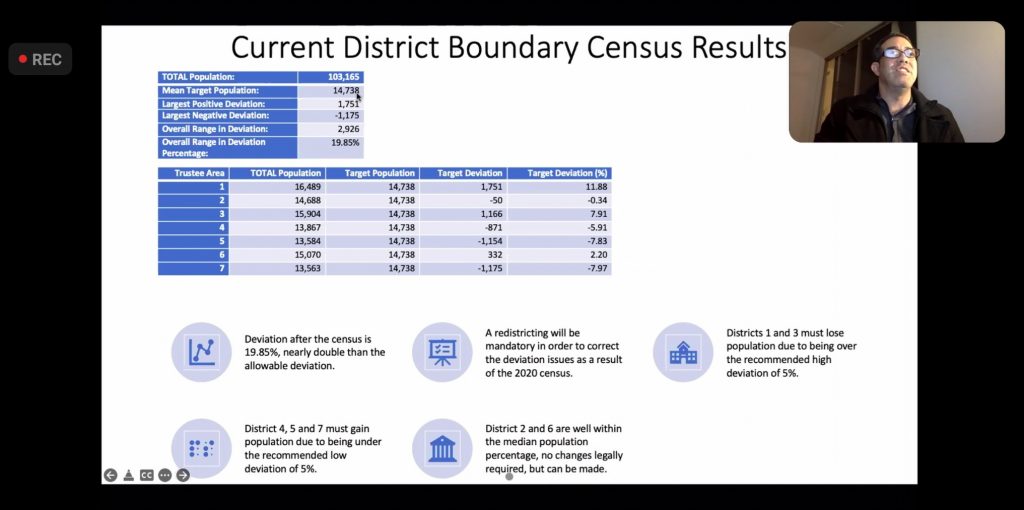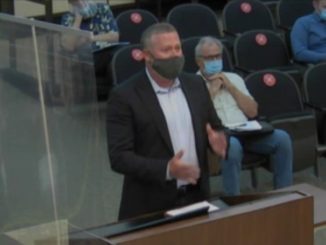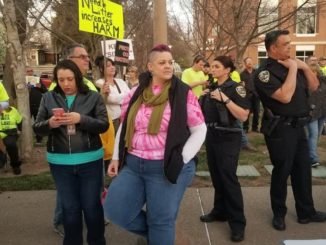
Rivaling discussions in business classes at Chico State, Chico City Council members examined free-market forces at their virtual meeting Tuesday night (Feb. 1), with commercial cannabis receiving the most robust debate.
The council—convened over Zoom as a COVID-19 precaution—had on its agenda a look at cannabis delivery. At the Jan. 4 meeting, City Attorney Vince Ewing was directed to analyze existing policy in relation to storefront (i.e., brick-and-mortar) dispensary and nonstorefront delivery services. He reported back that city ordinances already covered both, so the council could take applications for nonstorefront delivery without modifying the municipal code.
For Councilmen Dale Bennett and Sean Morgan, the discussion was academic. They asserted that the matter was settled last year when the council decided Chico would have three storefront dispensaries that also offered delivery. Morgan cited a misunderstanding from December during deliberations about permitting other sectors—delivery, a retail function, conflated with distribution, on the wholesale end—as to how the door cracked open.
Morgan also invoked words of Councilman Michael O’Brien, former Chico police chief, that “we need to walk before we run” with cannabis: start slowly and see what happens. O’Brien repeated his mantra in saying he wouldn’t support expanding deliveries beyond the storefronts.
Councilwoman Alex Brown suggested a broader view. With dispensaries beyond Chico already delivering locally, she proposed that the city needs to know how it can enforce its laws and collect its revenue. Outside services become illegal once the city issues permits within its jurisdiction; pragmatically, though, what’s to prevent others from still operating here?
Echoing that uncertainty, Mayor Andrew Coolidge seconded what became a motion from Brown to (per the city clerk) “direct the [c]ity [a]ttorney to explore the nuances of enforcement if a ban on outside deliveries was to remain in effect” and city staff “to bring back what that type of enforcement structure would look like.” It failed, 4-3, with Councilwoman Deepika Tandon joining Bennett, Morgan and O’Brien.
With that, the council took away—for a while, at least—the option of delivery by any business other than the three storefront dispensaries that will emerge from an ongoing process involving two-dozen applicants. Rules governing council meetings preclude Brown, Coolidge or Vice Mayor Kasey Reynolds (the motion’s other supporter) from revisiting the item until a year passes; in interviews with the CN&R by phone, Brown (a former vice mayor), Coolidge and Morgan (a former mayor) all said Tuesday night’s vote covered the nonstorefront issue. (Ewing did not respond to a request for clarification.)
“It’s ironic to me that people who are so market-focused and market-trusting would make a decision that is so antithetical to that philosophy,” Brown said Wednesday morning (Feb. 2). “Throughout the entire process of creating a well-vetted policy for cannabis licensing, delivery was not the primary point of contention—storefront retail was. They started with that, and then they created a monopoly out of that.
“That’s just not good economics, and it’s not good politics.”
Brown argued as much during the council’s deliberations. She pointed to competition affecting prices. She highlighted barriers to entry—access to opportunity for small local businesses and those personal investments in the community. To Morgan’s comparison of dispensaries to liquor stores, noting that “we don’t allow the free-enterprise system to be clear without regulations,” Brown contended the goal is to “regulate a legal industry to get benefits with as minimal harm as possible.”
Not always aligned with Brown, the lone progressive on the conservative-majority council, Coolidge shares her concerns over the vote.
“I think it’s a discussion that needs to take place, because right now we have all these outside companies coming in from outside the area,” he told the CN&R. “To not know what we’re going to do in terms of policy I think leaves it a little messy.”
When her motion didn’t pass, Brown asked for a discussion once the city approves the three storefronts and sees whether all offer delivery.
“Honestly speaking, I don’t see why they wouldn’t,” Coolidge said Wednesday, “because those three would have a monopoly over delivery—and then the city is going to have to figure out how to enforce that on the outside [services], because I’m sure those three are going to be going back to the city [to do so].”
An inquiry from Morgan to the city attorney about the rule preventing reintroduction of a failed motion ended the item.
“There will be no delivery outside our retail establishments, or people breaking our ordinances, for at least a year,” Morgan told the CN&R. “Will it be reassessed? Yeah, probably.
“We’ll look and see how we’re doing with this delivery. Are these three guys making money hand over fist and we could handle another couple … and it serves the public good, then maybe we open up a couple more delivery services. Or maybe, more than likely, three delivery services is more than enough … but we don’t know, which is probably why we shouldn’t have even had that discussion last night.”
Redistricting and more
The city started the process of redistricting at Tuesday’s meeting. The previous council drew districts for the first time, ahead of the November 2020 election. The current council is tasked with ensuring Chico’s map meets state and federal laws with the incorporation of 2020 census figures.
Claudio Gallegos with ARDA Demographics, the city’s consultant for redistricting, told the council that the current map is out of compliance. Population shifts, most notably into Morgan’s north Chico District 1, will require adjustments to district boundaries. The election rotation will remain unchanged, with Districts 2, 4 and 6 contested this November. (District 3 will also be open, due to a resignation; Bennett is filling the seat by appointment until then.)

Gallegos will present several proposed maps: one that makes minimal adjustments strictly for population (“right-sizing”) and others that take into account “communities of interest” such as neighborhoods. Citizens also may submit maps, through Feb. 14, online or by paper copy to the city clerk.
Morgan, who questioned Gallegos about his Democratic political affiliations at the Dec. 8 meeting, had hoped redistricting could occur with few changes. “That’s not gonna happen,” he told the CN&R. laughing. “When he said, Clearly we’ve got to change this because District 1 is 20 percent over what their number should be, my knee-jerk reaction to that was, Clearly everyone wants to live in District 1!
“The only reason I’m disappointed we have to make the changes, as big as they are—that’s the law—[is] smaller changes would have allowed for less consternation. As you saw with the county, as you’re now seeing with the [Chico Unified] School District, I’m not saying gerrymandering is going on or not going on, but no matter what happens, someone is going to be accused of it, because that’s what people do today.
“I just hope we can put and keep neighborhoods together that belong together. But that’s really challenging in Chico.”
Brown, who like Morgan was on the council for the initial district-setting, and Coolidge, who wasn’t, both emphasized the importance of public participation. Tuesday night marked the first of four public hearings; the next is March 1. The city must complete redistricting no later than April 17.
“We know, given what we saw at the county level, that there are political forces at work to attempt to create maps that prioritize party,” Brown said. “So we know that those forces are at work; we know they are not going to be silent in this process, and I’m certainly going to follow the process with a level of scrutiny and understanding of that.
“It’s perfectly reasonable to be skeptical and cautious when political leaders have the final say of what maps are chosen. Obviously the sweep of council in the last election put people of a certain political lean in power; I hope that they use that power wisely.”
The council did not need to take action on redistricting this meeting—and didn’t. Members did approve, with unanimous votes, the first step toward creating a city-owned fiber utility for broadband internet and started the process for organic waste recycling as mandated by California’s Senate Bill 1383. The latter will require the city to seek a dispensation from the state due to market forces—namely, lack of local processing facilities, trucks and bins.




Be the first to comment